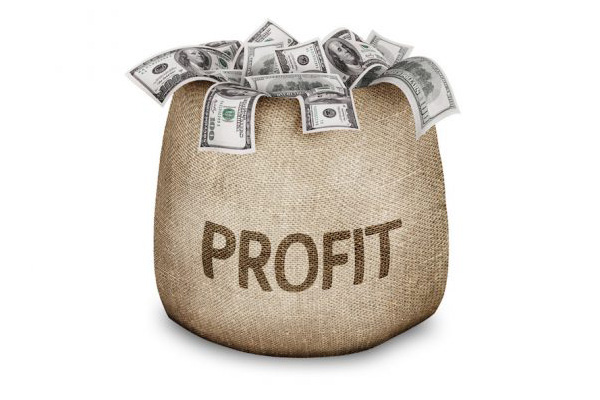There are many reasons to critique business these days. From crony capitalist practices to surveillance capitalism and data collection, from abuse of the environment for short term profits to siding with the fashionable for short term praise at the expense of religious freedom and long term cultural health. Business and corporations deserve much of the condemnation they receive. As Adam Smith wrote in The Wealth of Nations
People of the same trade seldom meet together, even for merriment and diversion, but the conversation ends in a conspiracy against the public, or in some contrivance to raise prices.
I agree with Smith’s worries and am discouraged, but not the slightest bit surprised, that businessmen so easily cave to social pressure and fashion.
The Wrong Side of History
Alas, you can almost bet on business people to be on the wrong side of history from slavery to abortion and eugenics to gender theory to making deals with totalitarians powers. And contrary to the image, business people are rarely a reliable friend of a free, competitive market economy.
They like it when it gives them low barriers to entry, but as soon as they get a chance, will lobby the government for protection.
Yet, despite the failures of business people and corporate sycophants, it is important to keep in mind the value of work, the benefit that businesses and entrepreneurs bring to society, and to the inherent moral enterprise of business. Clear thinking about the moral nature of business and the benefits business brings to the common good can help business avoid some of the moral and social pitfalls of commerce and the sham ethics of the corporate social responsibility movement.
The Moral Enterprise of Business
Here is a selection from a chapter I wrote for a collection of essays in the book Christian Theology and Market Economics. The essay is titled “The Moral Enterprise of Business.” In it I discuss what business is and its social and moral value, potential pitfalls, and its contribution to the common good.
This section below comes from an earlier part of the essay where I discuss the legitimacy and purpose of business:
In order to discuss more fruitfully the moral value of business, it will be helpful first to examine the purpose of business. One of the most well known statements of the role of business comes from the late Milton Friedman who argued that the social responsibility of business is to make profits for shareholders (Friedman 1970). While the role of shareholders is important and cannot be overlooked, I would argue that Friedman’s vision of business is insufficient and one-dimensional. A richer definition has been provided by Peter Drucker, considered the father of management and who was also a Christian. Drucker argues that the purpose of business is to create a customer (Drucker 1973, p.61). At first glance, this definition may seem crassly utilitarian but, in light of Drucker’s other writings, the notion of creating a customer becomes clearer. It is tied to meeting the needs of others, which requires that the business person be ‘other directed’ (Sirico 2001, p.21). An eminently self-centered business person focused on his own profit would be oblivious of the needs of others and so would be unable to create a customer (see Novak 1982, Novak 1996, Sirico 2001). Drucker argues that profit is actually irrelevant to the purpose of business; it is merely a measure of success. This is an important distinction, since profit is the indicator of whether a business is producing goods that meet human needs in a way that utilizes and allocates capital and human resources in an efficient manner. If a firm does not do this, people will not pay for its product and this will force it to adjust in order to meet expectations. (Drucker is presupposing a market economy with a price mechanism and reasonably freedom of exchange)
Still, the notion of creating a customer does not sufficiently do justice to the moral nature of business. While Drucker did not ignore the relational, interpersonal and inter-subjective elements of a business, a richer definition of business from an explicitly Christian source that includes these elements and is reflective of the larger Christian tradition can be found in John Paul II’s Centesimus Annus where he writes:
…the purpose of a business firm is not simply to make a profit, but is to be found in its very existence as a community of persons who in various ways are endeavoring to satisfy their basic needs and who form a particular group at the service of the whole society. Profit is a regulator of the life of a business, but it is not the only one; other human and moral factors must also be considered, which in the long term are at least equally important for the life of a business (John Paul II 1991, 35).
This approach is interesting because it emphasizes a multi-dimensional view which includes the communal and relational aspects. John Paul II places business within a larger context of the human person as a moral agent, and his discussion of business as a ‘community of persons’ is an important point that has repercussions on the way one views the legitimacy of business in society. His idea is rooted in the natural right of free association found in Leo XIII’s Rerum Novarum (1891) and in St Thomas Aquinas. This approach is markedly different from the [dominant Corporate Social Responsbility] CSR approach which sees business as receiving its legitimacy from society or the state.
While Catholic Social Teaching is but one example of Christian reflection on these issues, I have decided to draw from John Paul II for several reasons: his writing are deeply rooted in Scripture and the overall Christian tradition that is accepted by most serious Christians, his role as leader of the Catholic Church gave him a certain stature and authority even among non-Catholic Christians who may disagree on various doctrinal approaches, and finally because his analysis of work and business are perhaps the most recent systematic reflection by a world-regarded Christian authority.
The Christian tradition views business as a manifestation of a natural right of persons to form an association to achieve some common end. John Paul II sees business as a type of what Tocqueville called an ‘intermediary institution’ or what is commonly called civil society. In business, man has the opportunity to live out his freedom and responsibility and to take care of himself and his family while also serving society. It is important to note that the importance of profit is not denied. ‘The Church acknowledges the legitimate role of profit as an indication that a business is functioning well. When a firm makes a profit, this means that productive factors have been properly employed and corresponding human needs have been duly satisfied’ (John Paul II 1991, 35, italics in original). But it is also emphasized that profit cannot be the only regulator. The fact that one can make a profit from a particular endeavor does not by itself provide sufficient moral legitimacy, nor do decreasing profit margins always justify the laying off of workers or moving a factory. For example, the fact that one can make a profit by selling pornography in no way justifies engaging in such business.
While profit is a legitimate and important factor it is not the sole factor in making business decisions. This is precisely because a business is more than just a profit-making venture; it is a ‘community of persons’. John Paul II’s discussion of profit and business is one element of his analysis of the market economy in general. He recognizes the value of the market economy but rejects a libertarian view which would idolize choice as the determining factor. A market can produce and distribute goods and services more efficiently and equitably than any other economic system but efficiency and equality are only certain values among others and must be measured within the context of the human person and the backdrop of basic moral goods.
All of this can be summed up by repeating once more that economic freedom is only one element of human freedom. When it becomes autonomous, when man is seen more as a producer or consumer of goods than as a subject who produces and consumes in order to live, then economic freedom loses its necessary relationship to the human person and ends up by alienating and oppressing him (John Paul II 1991, 39).
This vision of rooting economic freedom in human freedom and the nature of the person is reiterated when he asks whether capitalism is the model that developing countries should adopt. He says that if capitalism means ‘an economic system which recognizes the fundamental and positive role of business, the market, private property…as well as free human creativity in the economic sector’ then the answer is yes; though importantly, he notes it would be more accurate to call this a ‘business economy’, ‘market economy’ or ‘free economy’. On the other hand, if capitalism means a system in which freedom in the economic sector is not placed ‘at the service of human freedom in its totality, and which sees it as a particular aspect of that freedom, the core of which is ethical and religious, then the reply is certainly negative’ (John Paul II 1991, 42).
John Paul II’s emphasis on the ‘business economy’ or ‘free economy’ is illustrative. He rejects the Marxist term of ‘capitalism’ which was focused on structures, ‘labor’ and ‘capital’ in favor of a vision of economics that is centered on the person. The focus shifts from a mechanistic vision of man where the state plans the economy to a vision of individual persons and groups meeting their own needs through creative private initiative. This creates space and freedom for businesses and other intermediary institutions thus setting the stage for a flourishing civil society.
There is a tendency when one thinks of civil society to limit it to non-governmental organizations or private charities, and to exclude business firms or corporations. Businesses, however, are examples of civil society par excellence—private, voluntary associations of persons organized toward a specific end, which also provide a means to satisfy the needs of workers. All of this is of central importance to understanding business as moral enterprise and can have profound practical implications for management and business ethics.
You can read the entire essay and others in Christian Theology and Market Economics

